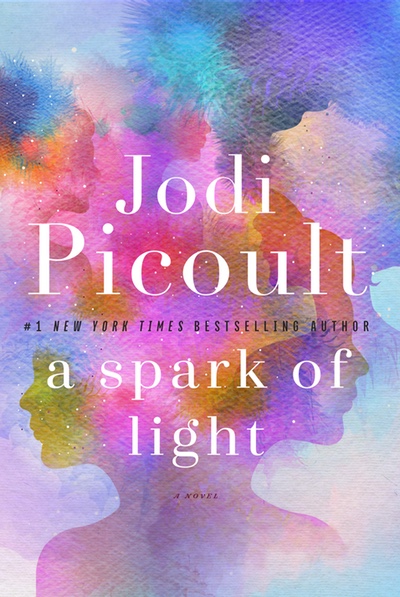Jodi Picoult’s latest novel, A Spark of Light, tackles the abortion debate and pulls no punches.
The story opens in Mississippi’s sole remaining abortion clinic, where a gunman
has killed several people, including the clinic’s owner, gravely wounded
several more, and is holding the rest – staff and patients – as hostages. The
police negotiator is desperately trying to talk him down before the SWAT team
takes control, and also to keep secret his discovery that his own daughter is
inside. One of the hostages is an anti-abortion protester who’s gone undercover
to try to obtain incriminating evidence of wrongdoing that will shut the clinic
down. As if that weren’t dramatic enough, in another part of the state a teenaged
girl has been charged with murder after a self-induced abortion through pills
she’d bought on the internet.
All of this is explosive enough, but Picoult doesn’t
simplify, preach, or condescend. Every one of her characters, from the shooter
to the spy to the negotiator, to the critically injured doctor and intrepid
nurses, to the girl who was at the clinic to get oral contraceptives to the
elderly woman facing a terminal diagnosis, come across as people with their own
histories, tragedies, and deeply held beliefs. More than that, Picoult leaves
the reader to draw their own conclusions from a spectrum of sympathetic but
ultimately incompatible agendas.
What happens next is even more challenging to the reader.
Instead of moving forward chronologically, each successive section moves us
back in time. We see the stage before the events we’ve just witnessed, and the
stage before that, and so forth, until the day is ordinary, the work routine,
beliefs are yet untested and courage untried. Poignantly, we see the people
killed by the shooter as alive and vital. The final section draws together all
the disparate threads to make the story whole.
For me, however, the most moving part of the book was the
Author’s Note, where Picoult talks about her interviews with people all along
the spectrum from opposing abortion under any circumstances to advocating for
no restrictions whatever. She points out that a significant number of abortions
are done for financial reasons, and offers suggestions for reducing the number
by addressing that desperation. Raising the minimum wage and offering
government-funded child care and universal health care would all make it
financially more feasible to bear and raise children. Discouraging employers
from firing or refusing to hire pregnant women is another approach.
Finally she writes,
Honestly, I do not believe we, as a society, will ever agree on this issue. The stakes are too high and both sides operate from places of unshakable belief. But I do think that the first step is to talk to each other – and more important, to listen. We may not see eye to eye, but we can respect each other’s opinions and find the truth in them. Perhaps in those honest conversations, instead of demonizing each other, we might see each other as imperfect humans, doing our best.

No comments:
Post a Comment